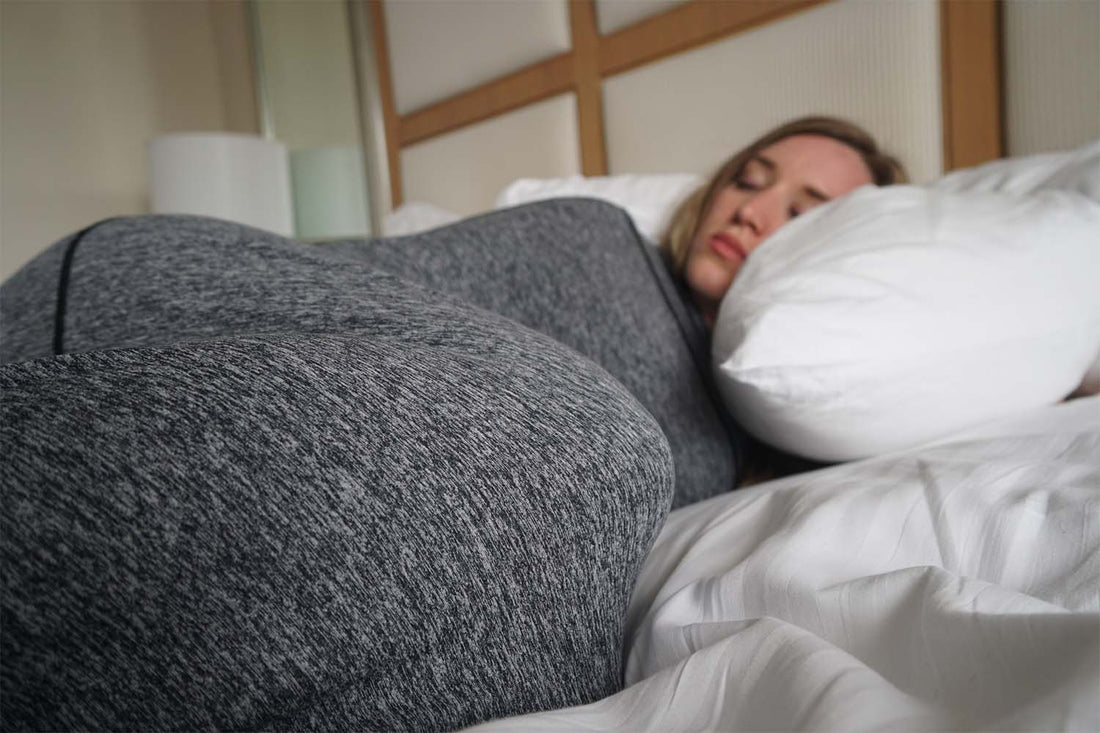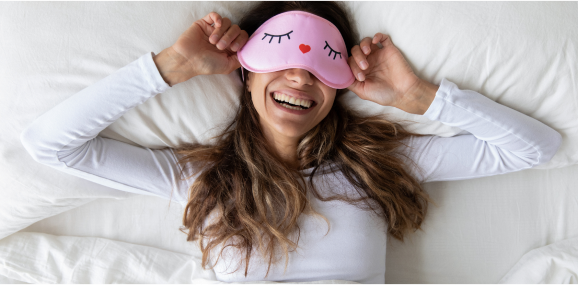Sometimes it feels impossible to get the sleep you need. Busy schedules, stressful events, and even aging can make it difficult to get good rest. The problem is, sleep is incredibly important to your body.
The team at Hug Sleep understands that sleep is essential for virtually every process that keeps you healthy. It can help you maintain a healthy weight, build a stronger immune system, and even improve your athletic performance. When you miss sleep, your overall health begins to decline.
Brain Health
Your cells require food to function, and eating food means creating cellular waste. The glymphatic system (yes, glympathic with a G) is a series of tubes that helps your brain clear out cellular waste. Most of the time, the cleanup crew doesn’t start working until you fall asleep.
Mental Health
Good mental health relies on your ability to get high-quality sleep. When you experience periods of sleeplessness, however brief, your mental health can suffer. Some research also indicates that your risk of developing memory-related issues, like Alzheimer’s and dementia, increases when you experience periods of sleeplessness.
Concentration
Everyone knows the feeling of waking up feeling groggy and disoriented. When you miss out on needed sleep, your ability to make decisions, think quickly, and act rationally suffers. You might find yourself making mistakes at work or running a stop sign.
There are numerous reasons why your body needs sleep. That said, just getting a certain quantity of sleep isn’t enough; you also need good quality sleep to avoid the negative health impacts of sleeplessness.
The Four Stages of Sleep
For sleep to be completely effective, you need to cycle through the four stages of sleep. You’ll normally cycle through each stage of sleep several times during the night. This is important because each stage of sleep signals your body to carry out different crucial processes.
The first three stages of sleep are called NREM, or non-rapid eye movement sleep. The last stage is REM, or rapid eye movement sleep. During the first three stages of NREM sleep, sleep becomes deeper and deeper. The higher the stage of NREM sleep, the more difficult it is to wake someone.
NREM1
Lasting between 1-5 minutes, this stage of sleep is very light. Generally speaking, you’ll just be dozing off. It’s easy to wake someone from NREM 1 sleep because they aren’t yet fully relaxed or deeply asleep.
NREM2
This phase lasts between 10-60 minutes. Key features of this sleep stage are a reduced core body temperature, slower heart rate, and complete muscle relaxation. Your brain patterns also begin to change, and you become harder to wake.
NREM3
The deepest stage of sleep, NREM 3, lasts between 20-40 minutes. Brain patterns change and take on a delta wave pattern here. This phase of sleep is crucial for the restorative processes of your body. It’s also very difficult to wake someone from NREM3 sleep.
REM Sleep
REM sleep lasts about 60 minutes. During REM sleep, you’re closer to being awake than you are in any other phase of sleep because your brain activity builds.
Interestingly, except for the muscles that control breathing and eye movement, you are completely paralyzed during REM sleep for your own safety. Your eyes, on the other hand, begin to move erratically and quickly even though they’re closed.
When sleep works properly, each stage of sleep is cycled through multiple times per night, with each phase lengthening in cycle length.
Signs You’re Not Getting Enough Sleep
Missing just one of these important sleep cycles is enough to produce negative health impacts. Constantly waking up tired, relying on stimulants to make it through the day, and feeling disorganized can all be signs you aren’t getting the sleep you need.
Here are eight signs your body gives you to tell you more rest is needed.
1. You Have Zero Trouble Falling Asleep… Anywhere
It might seem like a serious hidden talent to catch a snooze practically anywhere — but always feeling like you could take a nap is a sign you aren’t getting enough sleep at night. Most people aren’t capable of taking more than a small power nap (less than fifteen minutes) during the day.
Feeling like you could fall asleep in any place, with any amount of noise, at any given time, isn’t a cool party trick; it’s a sign you need some additional zzz’s at night.
2. The Snooze Button Is Your Best Friend
If you aren’t a morning person, it’s natural to feel a little sleepy when you first wake. However, once you get out of bed, are exposed to bright light, and move around a little, your body should naturally feel alert and refreshed.
If you find yourself constantly hitting snooze and unable to get out of bed, it could mean your body isn’t getting enough quality rest at night. Even sleeping in on the weekends can be a sign you aren’t getting enough sleep throughout your week. Ideally, you should go to bed and wake up about the same time each day — including Saturday and Sunday.
3. Your Diet Is a Little Haywire
Appetite is controlled by hormones like ghrelin, which signals hunger, and leptin, which signals satiety or satisfaction. Sleep deprivation is strongly linked to increased ghrelin production and lower leptin production, which means you could find yourself eating more calories than you need to.
While a day or two of eating more than normal won’t have a big impact on your waistline, the cumulative effect is a higher body mass index. Higher BMIs place you at an increased risk for a plethora of diseases, including heart disease.
4. You’re Making Careless Mistakes
Finding it hard to concentrate can be frustrating, and if it’s happening a lot, it could be due to lack of sleep. While it’s easy to blame our age for cognitive decline, research shows that sleep is perhaps even more impactful.
For younger adults, lack of sleep has been directly linked to slower reaction times, less ability to focus, and an overall feeling of being mentally fuzzy. If you’re feeling out of it, it likely means you aren’t getting enough sleep.
5. You’re Relying on Stimulants More Than Normal
Many adults start their day with a cup of coffee or tea, but drinking caffeine around the clock can be a symptom of sleeplessness — especially if you feel like the caffeine has no effect.
Drinking copious amounts of coffee and still not being able to power through your day means your body isn’t getting the recharge it needs at night. You might notice this lack of energy at work, at home, or during your gym time.
6. You’re Experiencing Lower Libido
Lack of sleep affects every process in your body — including your libido. When you aren’t feeling as interested in sex as you normally do, it could be due to a lack of sleep. Sleeplessness is associated with decreased testosterone levels, which can lead to a lower than normal libido, especially in women.
7. Your Joints and Muscles Ache
The body repairs itself at night while you sleep. Ask any fitness professional and they’ll tell you that sleep is required for building muscle. When you exercise, you create tiny microtears in your muscles. Repairing those muscles is what builds them back stronger — but that rebuilding has to happen at night when you sleep.
If you’re waking up more achy and sore than usual, it could be a sign your body isn’t getting enough rest.
8. You Have Negative Feelings About Sleep
It doesn’t take many nights of sleeplessness to have a complete attitude change toward the experience. When something that should come naturally doesn’t, it can leave you feeling worried, panicked, and stressed — the opposite of how you should feel when you’re trying to get to sleep.
If you feel stressed about sleep, it’s a good sign you need some coping techniques to help you get the rest you need. Thankfully, there’s a scientific way to get relief.
Getting the Sleep You Need
Your sleep is controlled by three processes in your body: your circadian rhythm, your sleep drive, and your central nervous system.
Circadian Rhythm
Your circadian rhythm uses light to tell your body when it’s time to be awake and when it’s time to be asleep. Things like traveling across time zones or working night shifts can interfere with your circadian rhythm, but there are two other processes to try to keep things on track.
Sleep Drive
Your sleep drive increases along with your need for sleep. When you wake up in the morning, your sleep drive is very low. As you use energy throughout the day, your sleep drive increases. Hours spent awake also increase your sleep drive, until it signals your body to sleep at night.
Despite the efforts of your circadian rhythm and sleep drive, though, it’s sometimes still hard to get the sleep you need. In this case, your central nervous system might be making it hard for you to rest at night.
Your Central Nervous System
Two parts of your central nervous system function together to keep you awake during the day and asleep at night. They are the sympathetic nervous system (SNS) and the parasympathetic nervous system (PSNS).
-
SNS. The SNS controls your awake and alert cycles. During the day, your SNS helps you respond to problems, make snap decisions, and manage deadlines. The SNS is also responsible for triggering the release of hormones like cortisol, which can increase your heart rate and make you feel stressed.
- PSNS. The PSNS helps you relax for sleep. The PSNS relaxes your muscles, slows your heart rate, and calms your body. It also signals your body to release the hormones dopamine and serotonin, which help you to relax so you can get the sleep you need.
Ideally, as your SNS slows down, the PSNS picks up and helps you rest. If you find it’s hard to relax before bed, a therapy called deep touch pressure stimulation can help.
Deep Touch Pressure Stimulation
Deep touch pressure stimulation, also called deep touch pressure therapy or “DTPT,” uses gentle pressure applied to the body to help stimulate the PSNS portion of your nervous system. DTPT helps your body to relax and prepares you for rest.
It’s easy and relaxing to get DTPT in the comfort of your own home with the Hug Sleep Sleep Pod. Designed to give your body gentle pressure from breathable, four-way stretch fabric, the Sleep Pod gives you the gentle pressure you need to relax so you can be prepared for sleep.
Don’t Ignore the Signs: Get the Sleep You Need
When your body gives you signs you aren’t getting enough sleep, pay attention. If you find it hard to relax and settle into a comfortable night of rest, trust the Hug Sleep Sleep Pod to cocoon you in comfort that feels like a warm hug.
Sources:
Are Toxins Flushed out of the Brain During Sleep? | Harvard Health
Mental Health and Sleep | Sleep Foundation
Stages of Sleep: What Happens in a Sleep Cycle | Sleep Foundation
The Impact of Sleep on Female Sexual Response and Behavior: A Pilot Study | PubMed

































500,000+ happy customers